-3 F. low in the Twin Cities Thursday morning.
11 F. high yesterday afternoon at KMSP.
33 F. average high on February 26.
20 F. high on February 26, 2014.
1" of snow on the ground.
February 26, 1981: Thunderstorms move across Minnesota dumping 1.61 inches of rain at Montevideo. Many places were glazed over with ice.
February 26, 1948:
Severe ice storm over central Minnesota. At the St Cloud Weather Office
1/2 inch of clear ice was measured. 65 telephone poles were down
between St Cloud and Rice.
Kinder and Gentler?
I
don't want to bury the lead: it may "snow" next Tuesday. The atmosphere
will be shifting gears to a milder, March-like pattern as the storm
track lifts north. No guarantees, but I wouldn't retire the old snow
shovel just yet.
The GFS is hinting at 40s within 2 weeks, so
expect volatility and big weather swings in the weeks to come. Pretty
typical for March.
We all experience weather, not climate, which
makes it hard to notice the big trends. If I'm cold how can the planet
be warming? Or as John Oliver quipped: "I just ate so there must be no
global hunger." We live in our bubbles and rely on scientists to analyze
the big picture and remind us why it matters.
You may be
shivering, but 4 of the 5 smallest "winter cold pools" on record over
the Northern Hemisphere have been observed since 2004. And Minnesota is
one of the 5 fastest warming states in the USA. Winter temperatures here
have warmed at least 4F since 1970, according to Climate Central.
Details below.
Warmer air and oceans are increasing water
vapor; more fuel for major winter storms and excessive snows. Boston
just picked up 100 inches in about a month - 10 times more than average.
The statistical odds? 1-in-26,315. Good grief.
* weather model output above valid 18z next Tuesday courtesy of WSI.
Boston's Astounding Month of Snow a 1-in-26,315 Year Occurrence.
100" in a month is pretty impressive, but it's off-the-charts-amazing
for Boston, where normal February snowfall is closer to 10". What are
the odds? Here's an excerpt of a good story from Eric Holthause at
The Washington Post: "...
To
do this, he parsed through every three-day period (to maintain
meteorological plausibility and prevent the possibility of
back-to-back-to-back 20-inch snowstorms) and then randomly generated a
set of hypothetical winters consistent with the city’s climate history.
His analysis shows that given a static climate, Boston can expect a
winter with a 30-day stretch like this one only once approximately every
26,315 years — 38 out of a million..."
Photo credit above: "
A
sign advertising a home for sale peaks from a mound of snow, Monday,
Feb. 23, 2015, in Marlborough, Mass. Real estate agents have found that
purchase closings are being held up because of the heavy snowfall in the
Boston area." (AP Photo/Bill Sikes).
Even As The Eastern U.S. Freezes, There's Less Cold Air In Winter Than Ever Before.
The winter cold pools are trending smaller over time over the Northern
Hemisphere, but they seem to be (consistently) setting up over the
eastern USA and eastern Canada as polar air becomes displaced south by a
rapidly warming Arctic. But temperatures aloft, about 1 mile above
surface level, show the trends. Here's an excerpt of a Jason Samenow
story at the
Washington Post's Capital Weather Gang: "...
In a study accepted for publication in the Journal of Climate,
Martin found that four of the five smallest Northern Hemisphere cold
pools on record — averaged over the winter — have occurred since 2004.
“Only 12 of the 43 winter seasons before 1990-1991 had below average
seasonally averaged areas whereas 20 of 24 winter seasons have had below
average seasonally averaged areas since,” the study says..."
Graphic credit above: "
Blue
and red bars illustrate the annual difference from the long-term
average in the area of the Northern Hemisphere cold pool. The light gray
line portrays the surface temperature difference from average from the
UK Hadley Centre." (Jonathan Martin, Journal of Climate).
Warming Winters: U.S. Temperature Trends.
We experience weather, not climate, which is one (of many) factors that
makes this issue so complex. If you're freezing your butt off how ON
EARTH can the atmosphere be warming? Not at my house! Keeping a global
perspective is difficult, but essential when discussing climate trends.
Here's an excerpt from
Climate Central focused on the rate of winter warming across the USA: "...
Since
1970, winters in the top 5 fastest-warming states — Minnesota, North
Dakota, Wisconsin, Vermont and South Dakota — heated up four-and-a-half
times faster than winters in the 5 slowest-warming states: Nevada,
California, Oregon, Colorado, and Washington. The five fastest-warming
states have seen at least 4oF warming in winters since 1970..."
Cold Bias Into Next Week.
The next thaw may not come until a week from tomorrow, based on the
latest guidance. Temperatures recover into the mid and upper 30s over
the weekend, pathetically reasonable I guess. The next chance of
accumulating snow (remember that?) is Tuesday, and it could be a few
inches, even enough to shovel and plow, depending on the final storm
track and how much moisture surges north. I'm going way out on a limb,
but there's a chance subzero lows late next week may be the last, or
among the last, of the winter season, based on the significant warming I
see for mid and late March.
Zonal Winds Aloft by Mid-March.
We'll see more cold fronts, but the odds of subzero nighttime lows
should drop off significantly within 2 weeks as winds at 500 mb (18,000
feet) blow from Vancouver, instead of Saskatoon. By mid-March much of
the Lower 48 will be easing into a more springlike pattern. Map:
GrADS:COLA/IGES.
Worth The Wait?
This has been a chilly February (8.5F colder than average, to date) but
temperatures may rebound just as quickly in March. An extended period
above freezing is forecast by the GFS after March 10 or so, even a few
days in the 40s to near 50F. Amazingly it may be warm enough aloft for
rain within 10-12 days.
Videographer Captures Elusive Green Flash at Sunset on Hawaii's North Shore.
I'm very jealous - I've looked for the green flash for the better part
of 40 years. Still no luck. Here's a story excerpt and video (proving it
does exist!) at
Huffington Post: "...
When
it comes to the green flash at sunset, people fall into one of two
camps: those who have seen it with their very eyes and swear by its
majesty, and those who say it's just a figment of our imagination. Hawaii-based videographer Eric Sterman
falls into the former, having recently caught the flash while making a
time-lapse video of the sunset on the north shore of Oahu..."
By The Time You Read This, They've Slapped a Solar Panel on your Roof. Bloomberg Business takes a look at the trends; here's a snippet: "
Solar
is so cheap, the problem now is how to pay for it. Prices for
panels are down more than 65 percent in five years, to less than 70¢ a
watt. What's next? One word, Ben: financing. Building a solar
generating facility—either a massive one in a desert or a tiny one on
the roof—involves serious up-front costs..."
Tesla Gearing Up For Release of Batteries for the Home.
I have yet to meet (anyone) who doesn't like free stuff. That applies
to free energy, free electricity, harvesting the free power that hits
your home every day.
Gizmag has the details on how you'll soon be able to benefit from home solar panels and a well-positioned battery: "...
The
same lithium-ion battery technology that powers Tesla’s electric
vehicles will be used to develop a battery for the home, according to a
statement by CEO Elon Musk during a recent conference call with
analysts. The batteries would be used by homes and businesses to store
excess energy generated from solar panels during the day, and drawn from
at night when panels sit idle..."
Image credit above: "
Tesla home battery, which is currently produced for SolarCity's home energy storage system." (House Photo:
Shutterstock)
Close-Up Lightning Strike Compilation. No, don't try this at home - some of these close calls are truly amazing. Check out the
YouTube clip, which has received 3.7 million views.
Jordan's 6,000 Mosques Will Soon Have Rooftop Solar.
This is a trend I see with churches, synagogues and mosques worldwide
as houses of worship realize there's plenty of free energy to harvest
and the ROI is significant. Here's a clip from ThinkProgress: "...
Ahmad Abu Saa, a representative of the renewable energy department at the Ministry of Energy and Mineral Resources in Jordan, told
the Jordan Times this week that a new project to be implemented this
year aims to install photovoltaic solar systems on all of the country’s
6,000 mosques. The project will start by covering 120 mosques..."
Photo credit above: "The Abu Darweesh Mosque in Amman, Jordan." CREDIT: Wikimedia Commons/David Bjorgen.
The Robots Are Coming.
Is your job in danger of being disrupted by robotics in the
not-too-distant future? Here's an excerpt from a fascinating read at the
London Review of Books: "...
Frey
and Osborne’s conclusion is stark. In the next two decades, 47 per cent
of employment is ‘in the high-risk category’, meaning it is
‘potentially automatable’. Interestingly, though not especially
cheeringly, it is mainly less well-paid workers who are most at risk.
Recent decades have seen a polarisation in the job market, with
increased employment at the top and bottom of the pay distribution, and a
squeeze on middle incomes. ‘Rather than reducing the demand for
middle-income occupations, which has been the pattern over the past
decades, our model predicts that computerisation will mainly substitute
for low-skill and low-wage jobs in the near future..."
8 Foods That Help Improve Your Memory.
Details
has the article - what I would give to take a daily memory pill, in the
meantime I'm trying to get more salmon in my diet after reading the
story; here's an excerpt: "...
Forgot what you're looking for? Bad
with names? Writing down a lot of lists but then misplacing them? Like
most people, you're experiencing some memory loss—and growing older
doesn't help matters. Luckily, researchers all over the world are
scouring the earth looking for ingredients that might organically
improve human recall. Scan the menu of ingredients below and, if you
make the right diet changes, you too could develop a champion's memory..."
Mapped: These Are The Quietest Spots in America. Northern Minnesota is looking pretty good in the quiet-category; here's an excerpt of a story at
Quartz: "...
Researchers
used sound data collected from 546 sites around the US over the past 10
summers, then estimated the noise levels in the remaining areas based
on factors like population density, roadway sizes, and proximity to
airports, Fristrup tells Quartz..."
Map credit above: "The dark blue areas are the quietest, and the yellow to white are the loudest.
" (National Park Service, Natural Sounds & Night Skies Division).
A New Definition of Recyled: KFC To Roll Out New, Edible Coffee Cups.
TIME Magazine has the curious details: "
KFC is planning to serve its customers coffee in a cup they can eat.
The fast food chain will soon debut edible cups at all its U.K.
franchises, the New York Times reported. The cups will be made from
wafers lined with heat-resistant white chocolate and wrapped in sugar
paper, and will be introduced to KFC along with Starbucks brand
Seattle’s Best Coffee..."
How To Identify The One Thing You Were Born To Do. For me the answer is "napping". I'm damn good at it too. Here's an excerpt from
PBS Next Avenue: "...
1. Even if you didn’t get paid a cent for it, would you still do this?
2. Would doing this inspire you every day?
3. Does doing this come as naturally to you as breathing?
4. Do you feel you’ve been given a special gift to do this?
5. Does time seem to fly by when you’re engaged in this activity?
6. Can you possibly make money doing this?
People
often have difficulty answering yes or no to Questions No. 4 and No. 6.
For Question No. 4, keep in mind that while you might not yet be a master
of this activity, if you feel passionately about it and/or spend a lot
of time engaging in it, you may have been given a special gift to do it.
In such cases, your answer to Question No. 4 is likely to be yes..."
The Number One Song On The Day You Were Born?
You can also find out the #1 song on the day you were conceived, but
that's just too painful to imagine, so let's keep it basic. Thanks to
playback.fm for doing the heavy lifting.
Frozen Waves? This is a new one - I can't recall ever seeing such a thing before. Thanks to
Facebook and FOX 13's Paul Dellegatto for passing on photos from Nantucket. Think those folks are looking forward to spring: "
The
images from the record setting winter in the northeast have been
incredible...here are a few more....near frozen waves - like rolling
slurpees - on the beaches of Nantucket." (Photo credit: Jonathan Nimerfroh). Original photos courtesy of
Stay Wild Magazine.
TODAY: Sunny and brisk, lighter winds. Winds: SW 5-10. High: 15
FRIDAY NIGHT: Partly cloudy. Low: 6
SATURDAY: Sunny start, clouds increase. High: 26
SUNDAY: Mostly cloudy, colder breeze. Wake-up: 18. High: 27
MONDAY: Blue sky, cooler than average. Wake-up: 11. High: 26
TUESDAY: Wet snow or mix. Plowable amounts? Wake-up: 20. High: 28
WEDNESDAY: Flurries taper early. Drying out. Wake-up: 7. High: 15
THURSDAY: Partly sunny, feels like February. Wake-up: -2. High: 14
Climate Stories...
Yes, Global Warming Has Slowed Down A Little. And Yes, You Should Still Worry. Warming
of the oceans has accelerated, temperatures over land holding nearly
steady since the turn of the century. New research suggests any
land-based temperature plateau may be temporary; here's a snippet from
The Washington Post: "...
Ever
since, climate scientists have been trying to explain why the world has
seen a somewhat slower rate of warming in recent years — and publishing
multiple papers on the topic. Now, though, a new study in the journal Science suggests
that that the global warming “pause” may soon run its course, and,
anyway, it seems to have been caused by natural variability in the
climate system. Thus, the slowdown, such as it was, certainly is no
reason not to worry about a longer-term climate trend driven by
humanity’s greenhouse gas emissions..."
* an abstract of the new research is available at
Science Magazine.
New Study Directly Measures Greenhouse Effect at Earth's Surface. Carbon Brief has the story and video; here's a clip: "...
The
researchers used a set of instruments to take thousands of measurements
at the Earth's surface. The instruments record the longwave energy that
is re-emitted by greenhouse gases back towards the Earth's surface,
which causes the warming. Making these sorts of measurements on the
ground is difficult, says lead author Dr Daniel Feldman,
a geological scientist at the Lawrence Berkeley National Laboratory in
the US. With weather systems passing overhead, and temperatures and
humidity changing frequently, it's tricky to take energy measurements
without other factors getting in the way..."
Graphic credit above: "
How
carbon dioxide concentrations in the atmosphere have changed (blue
line) and their warming effect ('forcing') on the climate over the same
time period (orange line), for the southern Great Plains site (first
graph shown) and the northern Alaska site (second). The seasonal
fluctuations are caused by the rise and fall in plant photosynthesis in
summer and winter, respectively." Source: Feldman et al. (
2015).

You Want Jobs? Try a Carbon Fee and Dividend. Here's an excerpt of an Op-Ed at
syracuse.com that resonated: "...
The proposal I'm talking about is George Shultz's Carbon Fee and Dividend.
Shultz, former Secretary of State under Ronald Reagan, promotes this
plan as the conservative answer to climate change, because it won't
increase the size of government. It works like this: A steadily rising
fee - starting at $15 per ton of carbon-dioxide - is placed on fossil
fuels at or near the first point of sale, increasing by $10 per ton of
CO2 each year. Revenue from the fee is divided up equally and returned
to all households..."
Climate Change Will Hit America in the Breadbasket. NBC News has the story - here's an excerpt: "...
Theoretically, reduced production along the southern edge of the country's grain-producing regions should be offset by increased production along the northern edge. The Corn Belt (and Soybean Belt) is already pushing up past the Canadian border,
and Canada's wheat-producing zone is creeping farther north. But in
reality, the shift is still likely to produce a net loss in crop
production, said Jerry Hatfield, director of the USDA-ARS National
Laboratory for Agriculture and the Environment..." (File photo: Star Tribune).
Sea Levels in Northeast Jumped 5 Inches In Just 2 Years, Study Says.
Some of this is sea level rise, some is land subsidence, but the net
effect is clear; higher water levels are making coastal storms even more
damaging, especially when you superimpose a storm surge and surface
waves on top of the rising Atlantic. Here's an excerpt from a story at
Mashable: "
Sea
levels in northeastern North America jumped by more than five inches in
a two-year period between 2009 to 2010, a rate unprecedented in the
history of tide gauge records, a new study found. The study,
published Tuesday in the journal Nature Communications, found that the
temporary acceleration in long-term sea level rise resulted in coastal
flooding and beach erosion along the Northeast coast from New York
northward to Atlantic Canada..."
Sea Spike Details. Here's an excerpt from the new research referenced above via
Nature Communications: "...
The
analysis of long-term tide gauge records identified an extreme
sea-level rise (SLR) event during 2009–10. Within this 2-year period,
the coastal sea level north of New York City jumped by 128 mm. This
magnitude of interannual SLR is unprecedented (a 1-in-850 year event)
during the entire history of the tide gauge records..."
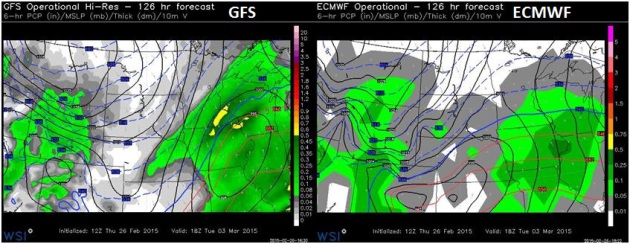
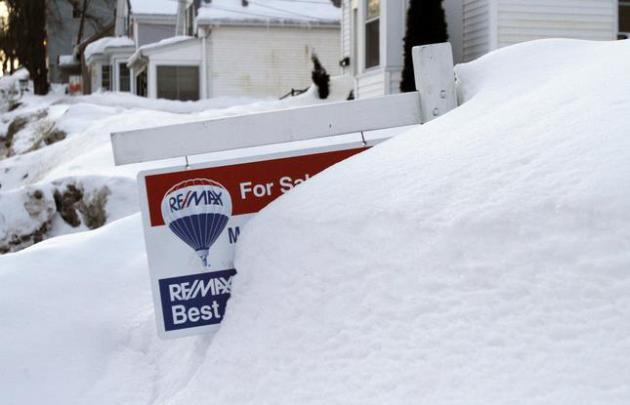
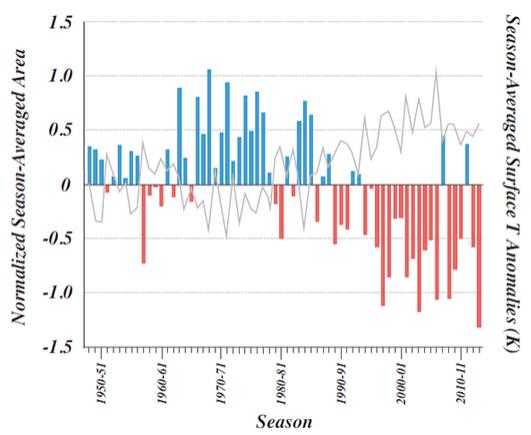
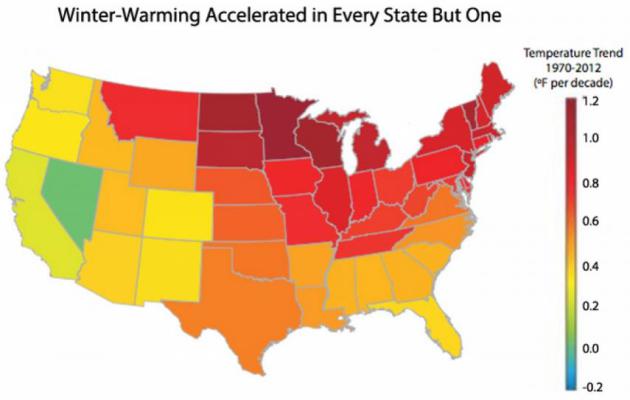
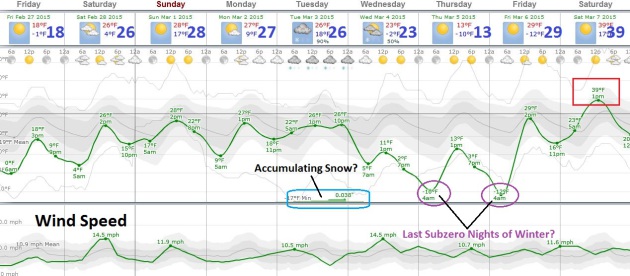
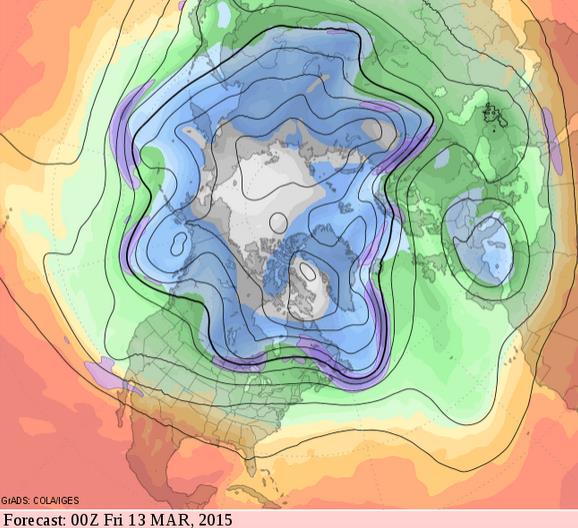
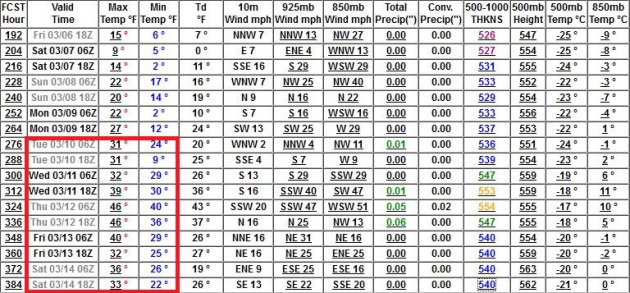
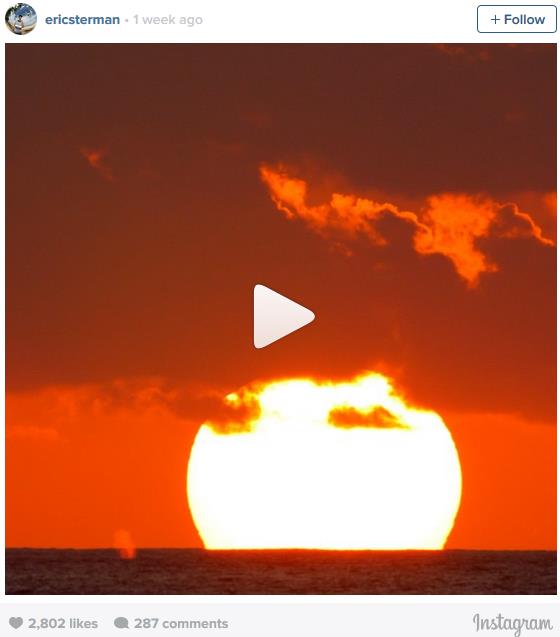
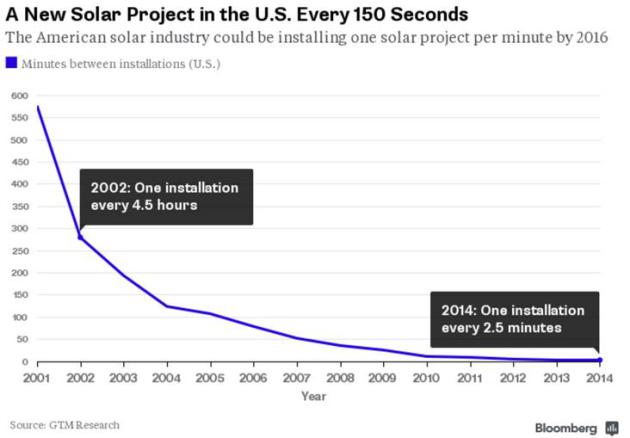
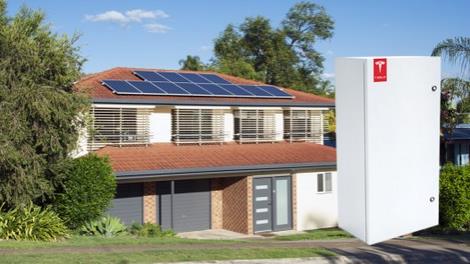
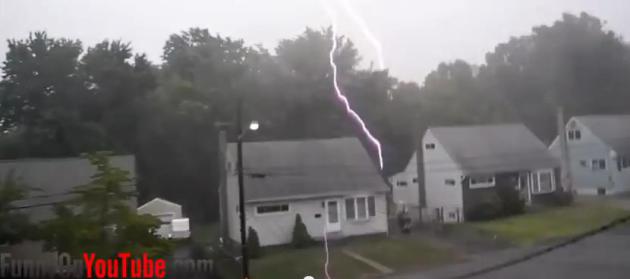



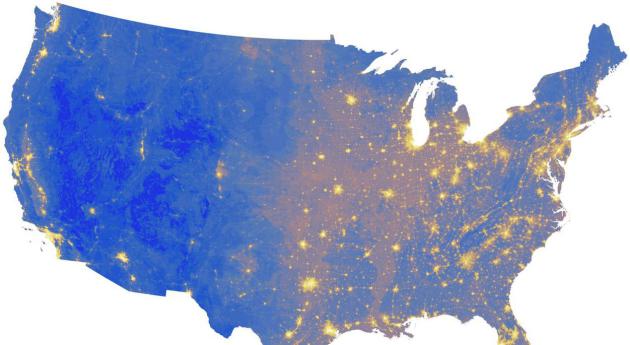
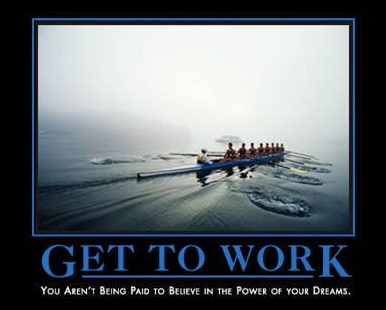
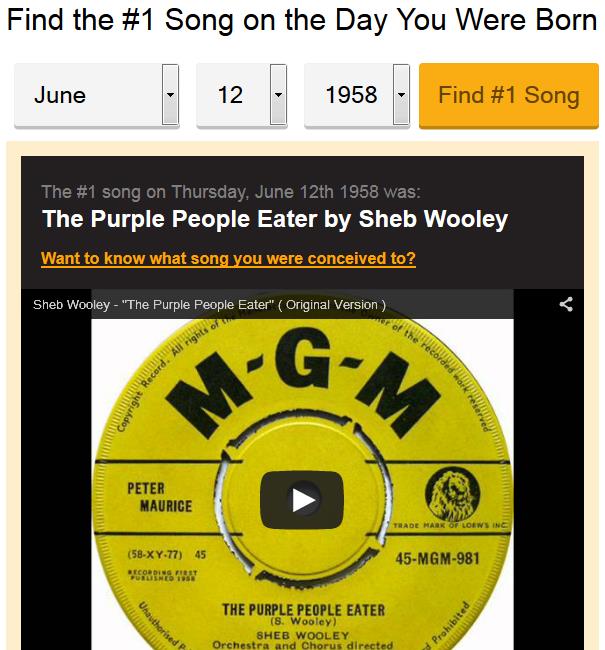
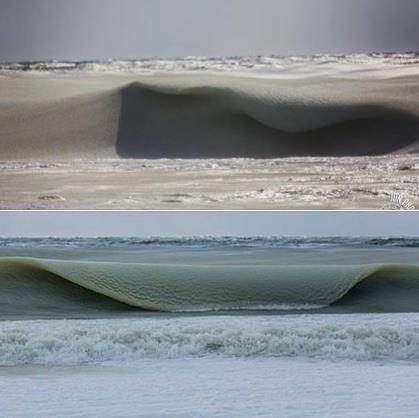

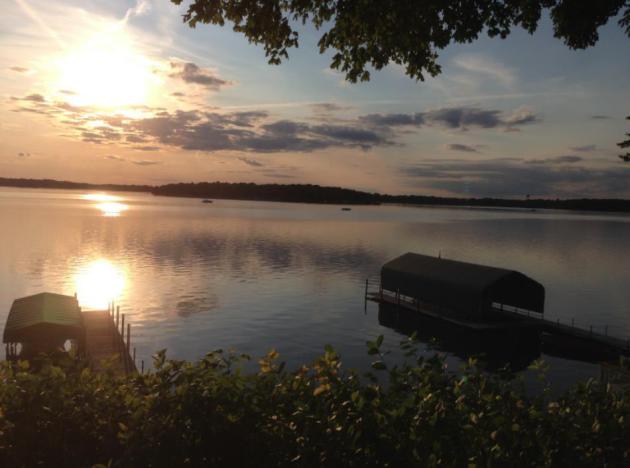
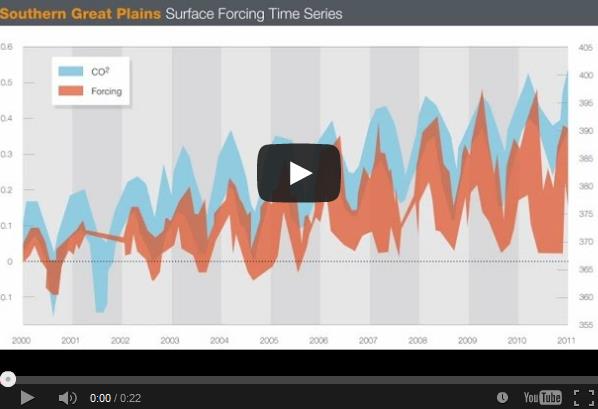
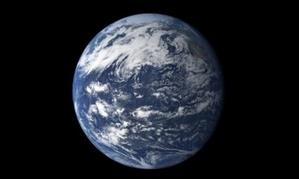
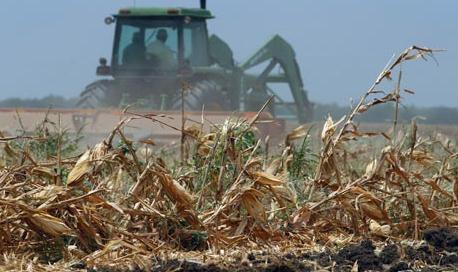
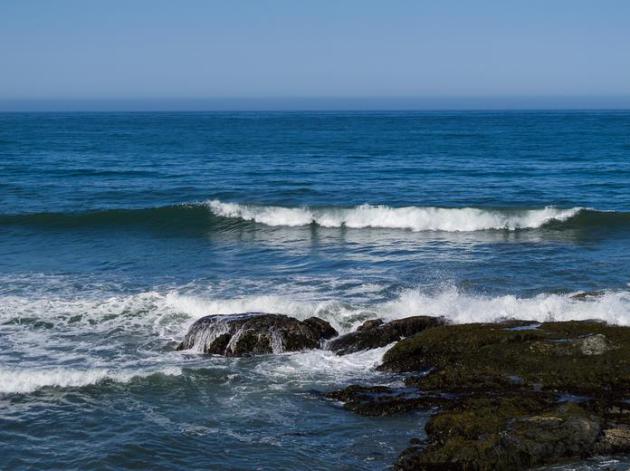
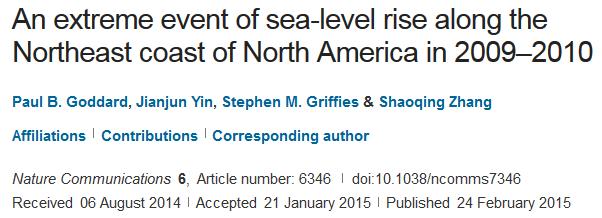
No comments:
Post a Comment